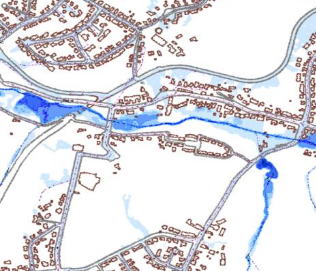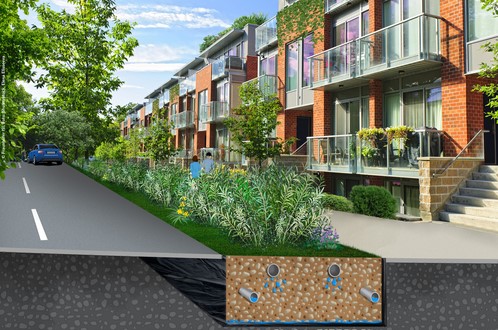
Integrated Water Systems

Addressing water wastage through efficient water management
A comprehensive drinking water supply is a vital service in every city and region. In addition to achieving constant high quality of water, maintaining sustainable water consumption, reducing energy demand of the water system and limiting water loss are all important elements of an efficient water management system. In addition to decentralized water supply systems, sensors and intelligent pumping systems can also be utilized to significantly improve efficiency. In regions with low water resources, early warning systems can indicate potential supply bottlenecks at an early stage, thereby reducing consumption and saving water for vital use.
Target groups include public utilities, city administrators and planners, municipalities, sensor suppliers, pump manufacturers and ecologists.

Clean drinking water is a human right
Clean water is a vital asset and, according to the UN, together with basic sanitation, a human right. That is why public and nationwide drinking water supply is considered one of the most basic and important infrastructures for any city or region. Aged, poorly constructed and leaky piping causes significant water loss during transportation. Efficient water management and monitoring is therefore of great importance for a loss-free and sustainable drinking water supply.
In EU countries, there is a legal basis for securing and monitoring drinking water quality, which must be adhered and implemented by countries and regions. This refers not only to guaranteeing a standard of drinking water treatment, but also to the provision of intact and clean piping systems.
Considering the objective of improving the sustainability of water system, in addition to the goal of reducing water consumption, wastewater must also be taken into account as an important element of water and sanitation provision. The central challenge faced by water supply managers is guaranteeing a high water quality while providing an environmentally friendly and efficient water purification or water treatment.
Sensors and Intelligent Networks (Smart Grid)
Remote water supply can ensure water provision in arid areas. In order to use water more efficiently, water loss during transportation must be kept to zero. New software for leak detection or process simulations in the area of water system management can be used to optimize water supply. In addition, ever-evolving technologies can reduce the negative environmental impacts of water treatment.
The use of sensors or sensor networks can replace conventional water meters by not only recording data related to water consumption, water pressure and system performance, but also through feeding data directly into an intelligent network (smart grid). This allows for long-term measurement and forecasts about water consumption. Further sensors can also detect possible damage to pipelines, enabling repair at the earliest possible stage.
Research Project TWIST ++
Within the scope of the joint research project TWIST ++ (Transition paths Water InfraSTructure system), new concepts, a planning support system and a "Serious Game" for stimulation of possible scenarios are being developed by a large research consortium under the leadership of the Fraunhofer Institute for System and Innovation Research ISI.
The aim is to find integrated and future-oriented technical solutions that intelligently combine wastewater disposal objectives with drinking water supply objectives and increase flexibility and adaptation ability of the overall system.
Water Energy Transition Concept - i.WET
The integrated water-energy-transition concept (i.WET) demonstrates through real-life scenarios how a modern and intelligent water supply and sanitation system can be created step-by-step in urban areas. It takes into account the sanitation cycles of existing systems, can be flexibly implemented in a modular manner and intelligently combines cutting edge water and wastewater technologies.
I.WET aims to address the three major water infrastructure-related challenges faced in Germany today: demographic change, climate change and energy demand. In Lünen, the city and catchment area of 90,000 people in western Westphalia, the results of i.WET are to be implemented in a pilot project in the coming years.
I.WET offers individual measures for buildings, channel systems and sewage treatment plants. A crutial point here is separation of less and heavily contaminated wastewater (grey / black water) already in the household. The researchers want to equip buildings with separate piping for shower and washbasin wastewater and for sewage from toilet, washing machine and dishwasher.
Water not recycled within the household then flows into "energy alleye", a green strip hosting suitable plants. The plants absorb the remaining nutrients creating optimal growth conditions. This results in biomass, fostering a greener city and reducing potential danger of flooding.
